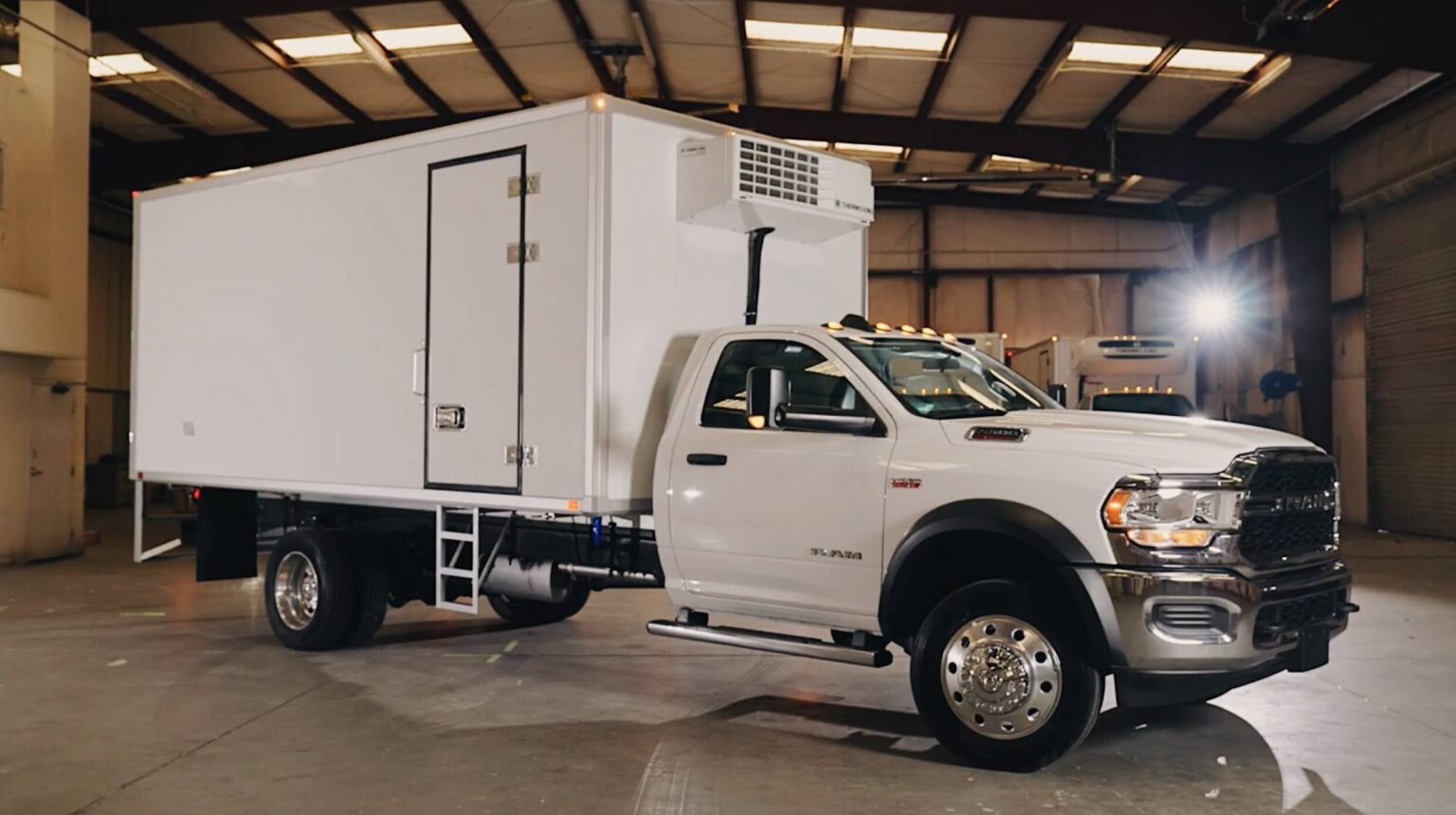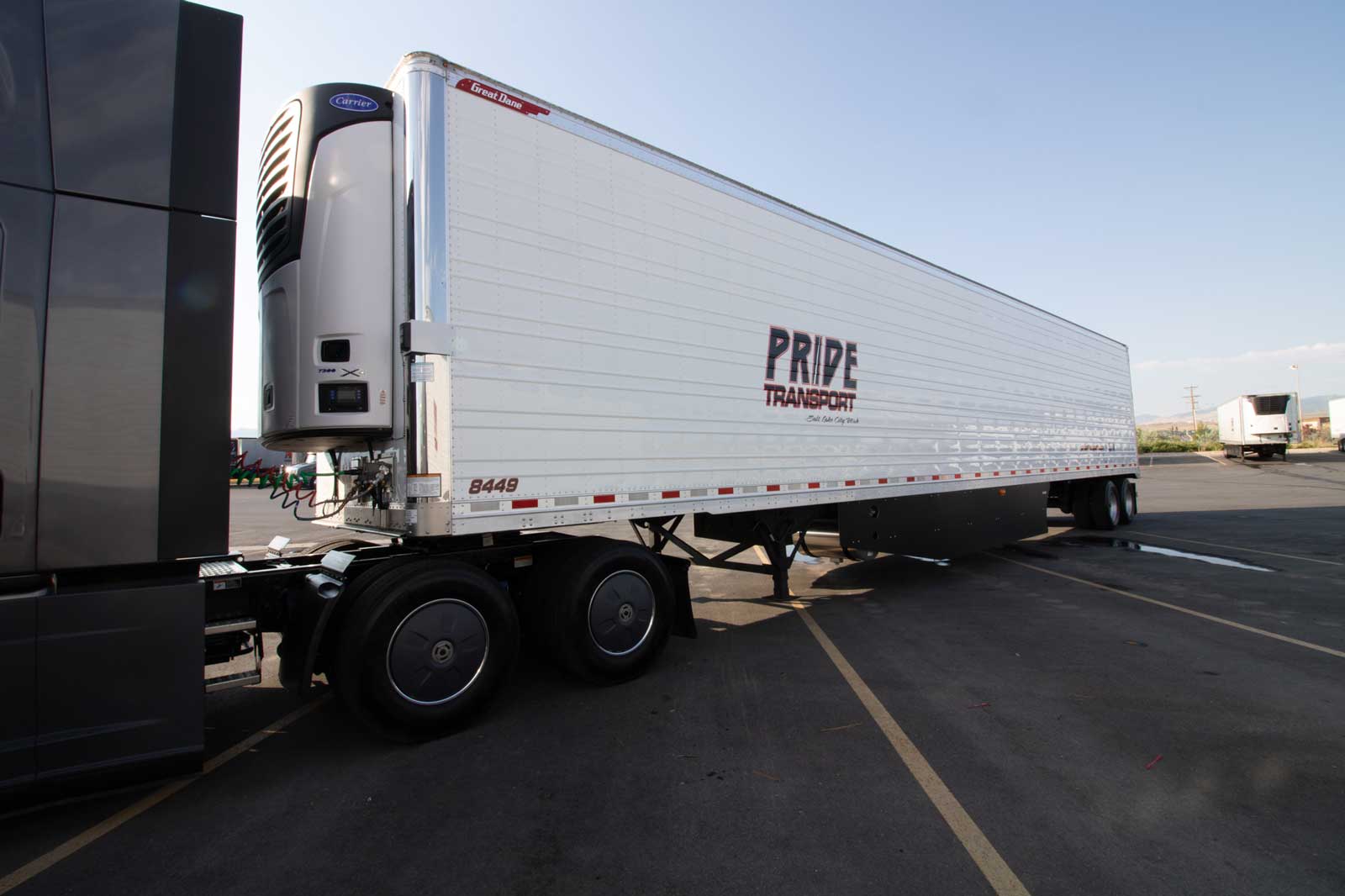Refrigerated Transportation Thermo King: Keeping Product Fresh en route
Refrigerated Transportation Thermo King: Keeping Product Fresh en route
Blog Article
Picking the Right Transport Refrigeration System for Your Fleet
Choosing a proper transportation refrigeration system for your fleet is an important choice that can significantly affect functional performance and item honesty. It requires a detailed understanding of your details refrigeration requirements, including temperature needs and shipment schedules. Numerous system kinds provide distinct advantages, yet picking the best one includes greater than simply technical specs; it additionally encompasses considerations of budget and future growth. As we explore these important aspects, it comes to be obvious that the implications of this option prolong far beyond operational capacities and initial costs. What might these effects reveal about your fleet's long-lasting success?
Understanding Your Refrigeration Requirements
When choosing a transportation refrigeration system, understanding your particular refrigeration requirements is paramount to guaranteeing item top quality and compliance with industry standards. Various variables should be thought about to identify one of the most ideal system for your procedure. These include the sort of products being transferred, their temperature needs, and the period of transit.
For subject to spoiling products, such as fresh fruit and vegetables or pharmaceuticals, specific temperature level control is vital. Understanding the temperature level range required for every product enables for the option of a system that can keep those conditions regularly. In addition, consider the regularity of shipments and the range traveled; longer journeys might demand systems with boosted insulation or back-up power choices to stop temperature fluctuations.

Furthermore, the ability of the refrigeration device must straighten with your load dimension. Straining a device can cause insufficient cooling, while an extra-large system might be inefficient and pricey. Governing conformity is necessary; familiarize yourself with international and local guidelines controling the transportation of temperature-sensitive goods. By completely assessing these variables, you can make certain that your selected transport refrigeration system successfully satisfies your operational requirements and preserves item stability.
Sorts Of Transport Refrigeration Equipment
Selecting the appropriate type of transport refrigeration system is important for guaranteeing the secure transit of temperature-sensitive items. There are numerous systems available, each designed to fulfill particular demands and applications.
One of the most typical types include straight development (DX) systems, which use cooling agent to take in heat and cool the freight area successfully. These systems are usually favored for their performance and reduced initial expenses. One more option is the central refrigeration system, which offers numerous compartments or lorries from a single compressor system. This is especially advantageous for bigger fleets requiring regular temperature level control throughout numerous transportation units.
Additionally, there are self-contained refrigeration units that combine the compressor and evaporator in one plan. When space is limited, these devices are optimal for smaller lorries or. For specialized applications, such as transporting perishables or drugs, cryogenic refrigeration systems might be used, using liquid nitrogen or co2 to keep ultra-low temperatures.
Last but not least, crossbreed refrigeration systems that integrate diesel and electric power are coming to be progressively popular, using versatility in energy use and decreasing environmental impact. Understanding these numerous kinds enables fleet operators to make enlightened decisions tailored to their details functional requirements.
Key Attributes to Think About
Just how can one ensure that a transportation refrigeration system fulfills all operational requirements? To attain this, numerous crucial attributes have to be very carefully examined. To start with, temperature level control is vital; systems ought to offer precise temperature settings to suit different items, ranging from frozen items to disposable things.
Power effectiveness is an additional essential consideration, as it affects operational expenses. Look for systems that use sophisticated technology, such as variable rate compressors, to optimize power usage without compromising efficiency.
An additional function to analyze is the integrity and durability of the equipment. Equipments constructed from top quality products and developed for Source strength versus rough problems will minimize maintenance expenses and downtime.
Additionally, the convenience of upkeep and accessibility of parts can substantially influence functional efficiency (reefer trucks thermo king). Functions like modular layouts or remote tracking abilities can enhance solution processes
Last but not least, compatibility with existing fleet monitoring software can improve monitoring and reporting procedures. By concentrating on these essential attributes, fleet operators can make certain that their transportation refrigeration systems not just fulfill current needs but additionally adjust to future requirements.

Budgeting for Refrigeration Solutions
Examining key functions of transport refrigeration systems is only one component of ensuring functional effectiveness; budgeting for refrigeration services is just as important. A well-structured spending plan not just includes the preliminary acquisition rate but additionally considers long-term functional costs, including energy consumption, upkeep, and prospective repair service requirements.
When developing a budget plan, fleet managers ought to initially analyze the overall cost of ownership (TCO) This consists of not only the procurement prices but additionally ongoing expenses connected to fuel effectiveness and the durability of the refrigeration units. Picking systems with greater power efficiency ratings may yield significant financial savings with time, alleviating ahead of time prices.
Moreover, fleet drivers need to represent possible scalability. As businesses expand, the refrigeration needs may alter, demanding upgrades or added systems. Preparation for these future expenditures can protect against monetary pressure.
Funding alternatives can also play a vital role in budgeting. Leasing, financings, or straight-out purchases each have distinctive monetary ramifications, and understanding these can assist in making a notified choice. Ultimately, a comprehensive spending plan that thinks about both immediate and future requirements ensures that transport refrigeration systems contribute positively to the overall functional effectiveness of the fleet.
Maintenance and Assistance Choices
In the world of transportation refrigeration systems, effective upkeep and support options are critical for making certain ideal efficiency and durability. Regular upkeep is important to stop failures and keep the integrity of temperature-sensitive freight. It is recommended to develop a routine examination routine with certified specialists who can carry out necessary checks and fixings on refrigeration units.
Assistance alternatives must consist of a robust solution contract, covering both regular maintenance and emergency repair services. This guarantees that your fleet has accessibility to motivate aid, decreasing downtime and maintaining functional effectiveness. Numerous producers supply thorough support plans that consist of training for your staff, allowing them to carry out basic troubleshooting and maintenance jobs.
Moreover, using remote tracking technology visit here can enhance your upkeep approach - thermo king truck refrigeration units. These systems provide real-time information on temperature and efficiency, allowing for positive steps before issues rise. Investing in training and modern technology not just enhances your fleet's integrity yet likewise extends the lifespan of your refrigeration systems
Ultimately, a strategic method to upkeep and assistance will certainly safeguard your investment and make sure that your transport refrigeration systems run at peak performance, delivering consistent outcomes for your company.

Conclusion
In verdict, selecting the ideal transportation refrigeration system for a fleet necessitates a complete assessment of certain refrigeration demands, system kinds, and vital attributes. In addition, mindful budgeting and preparation for future scalability will add to the long-lasting success of the refrigeration strategy.
Choosing a proper transportation refrigeration system for your fleet is a vital decision that can considerably affect functional effectiveness and product stability.When selecting a transport refrigeration system, understanding your certain refrigeration needs is critical to guaranteeing product high quality and conformity with industry requirements. By thoroughly assessing these factors, you can guarantee that your picked transport refrigeration system efficiently satisfies your functional requirements and preserves product integrity.
Ultimately, a detailed spending plan that takes into consideration both immediate and future demands guarantees that transport refrigeration systems add favorably to the general operational effectiveness of the fleet.
In final thought, picking the appropriate transport refrigeration system for check my source a fleet requires a detailed assessment of details refrigeration needs, system kinds, and vital functions.
Report this page